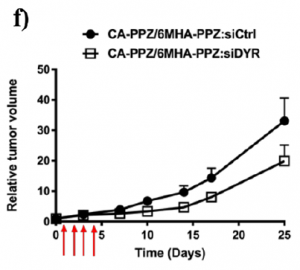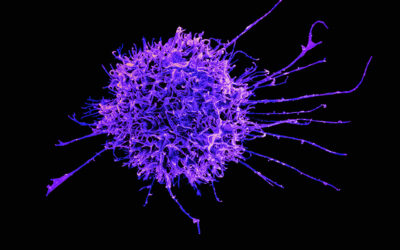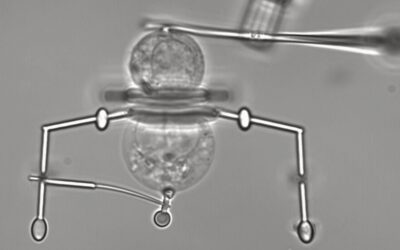Treating cancer with genetic material is a rapidly growing area of research. In order for this genetic material to effectively impact cancers, it must be delivered to a specific organelle within the cancer cells. At the present time, viral vectors are the most widely used for this purpose. However, the safety profile of this delivery system is not yet fully understood.

The green color represents successful gene delivery. The cells on the far right have been treated with the optimized polymer.
Viral vectors are not the only candidate delivery systems for gene therapy. Various polymer vectors are also targets of research, but in order for a polymer vector to be effective it must satisfy the following criteria: it must be biodegradable, demonstrate selective biodistribution, be able to pass through extracellular barriers, and it must be able to deliver its payload to the relevant organelle. In this context, a European team have been investigating the use of polyphosphazenes.
There are two main advantages of using of this functional group. The first is that it is biodegradable; the second is that lots of polymer vector variants can be made very quickly, and their efficacy investigated. Accordingly, the team built a library of these polymers with a wide variety of properties, and tested their performance against the parameters mentioned above. The compound with the optimal properties was tested in a mouse model.

Slower tumor growth as a result of treatment with the novel polymer.
To show that the novel polymer could deliver genetic material effectively, an experiment was set up. In one condition, mice were treated with the novel polymer and gene therapy. In the other condition, mice were treated with the novel polymer and a random genetic sequence. In both cases, the mice were simultaneously treated with a standard oncology drug.
It was found that the mice who were treated with the gene therapy in combination with the novel polymer demonstrated slower cancer progression than those who were treated with the random genetic sequence. This indicates that the polymer is indeed able to deliver the therapy to where it is needed. As a result, the team is hoping to trial this treatment in more complex models.

















